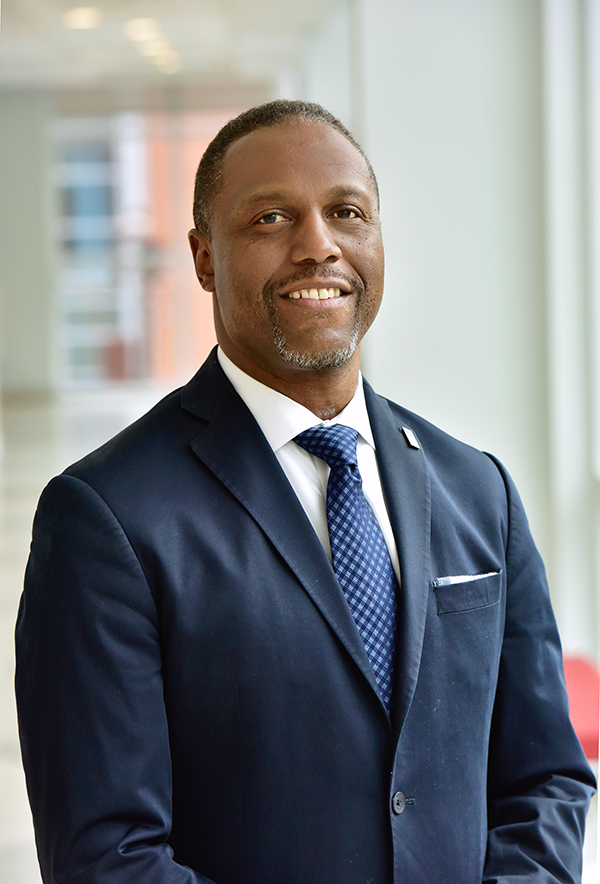Learning—and then learning by doing—ensures that students at the Fox School of Business have a solid theoretical foundation of knowledge as well as practical skills when they graduate. In recent semesters, the “hands-on” opportunities have changed, but in an ever-changing world, that can be a benefit for future members of the workforce.
For Wayne W. Williams, assistant professor of accounting, experiential learning is paramount to his approach to teaching. In both graduate and undergraduate classes, Williams builds real-world experiences into curricula.
In the Fox School’s Master of Accountancy (MAcc) program, Williams teaches Taxes & Business Strategy. The course culminates in a project. This summer, as a result of the COVID-19 pandemic and the creation of the CARES Act legislation designed to assist small business owners, Williams gave students the opportunity to meet with concerned small business owners interested in gaining insights that they may not receive from their current accounting firm. The MAcc program faculty wanted to make sure students were as engaged as they might be working in the classroom.
“The real key is being able to practice their communication skills,” says Williams. “They are evaluating fairly complex situations, and they need to be able to articulate solutions and provide insight. They are helping business owners make decisions, so this exercise was kind of a capstone for themes that we try to achieve throughout the Fox School and in the accounting program.”
Students created presentations and written memorandums to Williams that were designed to inform him of potential tax and nontax considerations that these clients may be facing and to provide insight on how students could position the “firm”—or the group of students working on the project—to win the client’s business.
“The solutions that students came up with were very good,” says Williams. “They were able to integrate concepts that I was teaching them in class, especially with regard to issues around state and local tax.”
They discussed ways to leverage tax law to produce savings or increase deductions during the pandemic, and they illustrated what possibilities exist on the other side of the public health crisis.
“We had entrepreneurs from different industries come. A technology cloud solutions company, a marketing and communications company, a restaurant, and a child care provider,” says Williams. “Students were really intrigued by the pathways of entrepreneurship. Most of these folks were college graduates that ventured out and started their own businesses.”
From these entrepreneurs, students learned about challenges with employment—how to create opportunities for others, or the pressure to hit payroll. “Entrepreneurs shared sacrifices they were willing to make in order to make sure that other people stayed employed. Students found that to be fascinating.”
For undergraduate students, the approach to experiential learning incorporates learning how one learns best. When elaborating on the topic, Williams references building IKEA furniture.
“There are four learner types,” says Williams. “You’ve got the person who doesn’t touch anything and pulls the paper out and spends all their time reading the instructions. Then there is the person who doesn’t read anything, takes everything out of the box, and figures it out by just putting the thing together on their own. There is the person who doesn’t read the instructions but uses the pictures instructions as a guide for how to see how to put the parts together overall. Then there is the person who calls a friend and talks it through, and builds the furniture as a team while eating some pizza or something.”
By engaging students and providing them with resources and materials across various mediums, faculty like Williams help them figure out how they can best absorb the material so that they can perform better throughout the course.
Hosting industry professionals is another way for undergraduate students to discover lessons from the real world. But in the virtual environment, the accounting department at the Fox School is creating community through events—inviting all students vs. limiting talks to students in particular courses.
During a Student Engagement Committee meeting, the team including Betsy Gordon, professor and chair of the department, Sheri Risler, academic director of the MAcc program, and Caehlin Bell, associate director of Marketing and Communications, came up with the idea for an accounting assembly. It would bring together the large department to share thought leadership, current events and more.
“They got around 300 students together, and faculty presented about the current goings-on in the department—student professional organizations, the VITA program, internship and scholarship opportunities—the ways that students can get involved,” says Williams. “The chat was super active, we got lots of great questions. It was a chance for us to highlight faculty leadership. So instead of bringing outside speakers, faculty could take on a different role as ‘inside’ speakers. That was kind of cool.”
